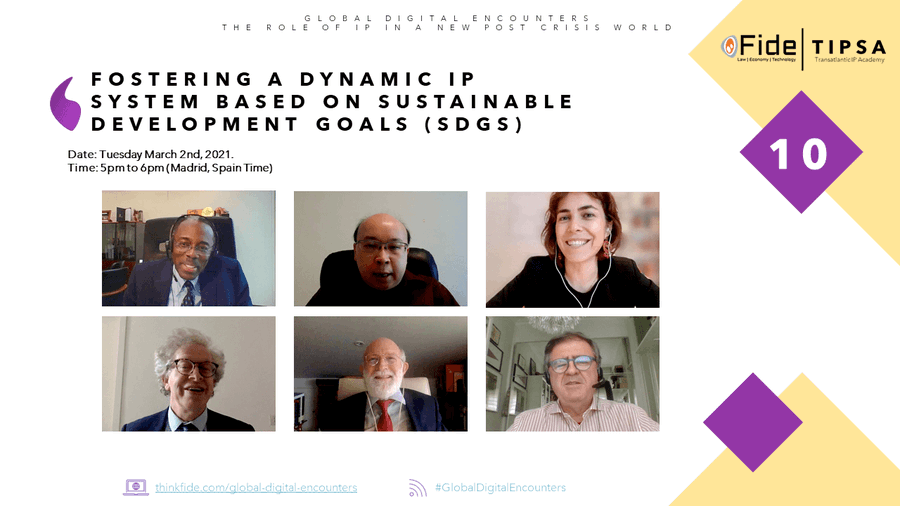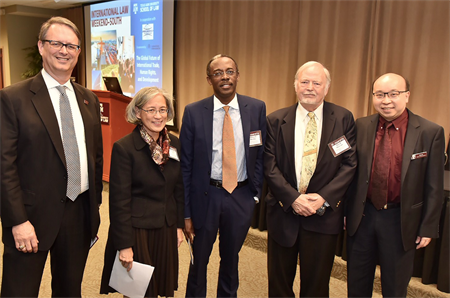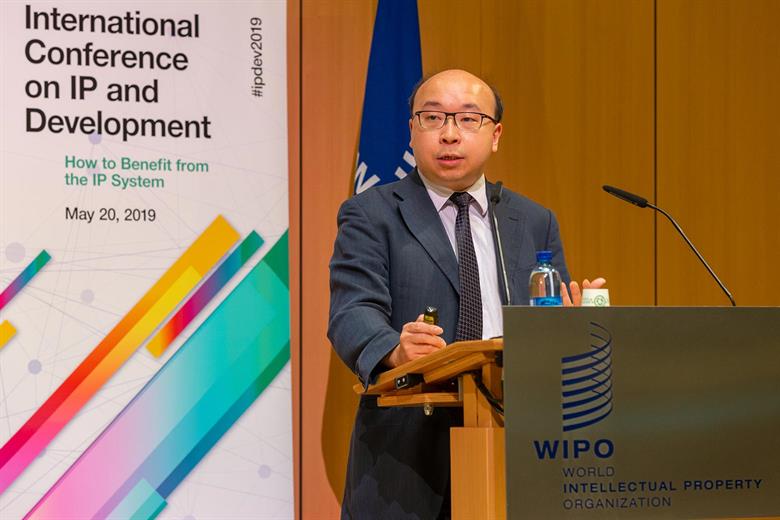In March, Peter K. Yu, Regents Professor at Texas A&M University School of Law, joined Edward Kwakwa, assistant director general of the World Intellectual Property Organization (WIPO), in the 10th Global Digital Encounter organized by FIDE (Legal and Business Research Foundation) and the Transatlantic Intellectual Property Academy. Professor Miriam Allena of Bocconi University in Italy moderated the event.
At the virtual encounter, which was accessible to over 600 network members and was subsequently made available online, Professor Yu explored the potential contributions of the U.N. Sustainable Development Goals to the intellectual property system and the role intellectual property law and policy can play in promoting these goals. He also shared his views on the recent proposal by India and South Africa to suspend selective intellectual property obligations under the WTO TRIPS Agreement to help contain and treat COVID-19.
"It is a pleasure to join Edward and Miriam in this very timely digital encounter," said Professor Yu.
"Issues relating to intellectual property and sustainable development have never been more important. As we continue to combat COVID-19, there is also the inevitable debate about whether the intellectual property system needs adjustments during the global pandemic."
Kwakwa visited Texas A&M University School of Law in March 2017 to deliver a plenary address at the International Law Weekend--South. Co-chaired by Professors Yu and Charlotte Ku, the event was jointly organized by the School of Law and the American Branch of the International Law Association (ABILA). Previously, Bocconi University has also collaborated with the Center for Law and Intellectual Property (CLIP) at Texas A&M University, serving as the host of the 10th Conference on Innovation and Communications Law in May 2018.
Photo Caption: Kwakwa and Yu join Former Dean Andrew Morriss, Prof. Ku and ABILA President David Stewart at the International Law Weekend--South (Photo credit: Doug Thurman).
Two years ago, WIPO invited Professor Yu to speak at the International Conference on Intellectual Property and Development in Geneva, Switzerland. Held at WIPO's headquarters, this high-profile event brought together leading intellectual property experts from around the world to share their knowledge and experience on intellectual property and development. The conference was attended by more than 100 delegates, diplomats and NGO representatives and webcasted to different parts of the world.
Photo Caption: Professor Yu identified strategies to align international intellectual property negotiations with the U.N. Sustainable Development Goals at the WIPO Conference on Intellectual Property and Development (Courtesy: WIPO)
Professor Yu directs CLIP and holds a joint appointment at the School of Law and the Department of Communication at Texas A&M University. An award-winning teacher and a prolific scholar, he is vice president and co-director of studies of ABILA and has served as the general editor of the WIPO Journal. He has testified before the U.S. International Trade Commission and has spoken on intellectual property issues at the National Academy of Sciences, the U.S. Library of Congress and the U.S. Patent and Trademark Office.
Under his leadership, the intellectual property law program at Texas A&M University has been transformed into a leading international hub for research and education in the field. In addition to an intellectual property concentration for J.D. students, the program offers a Master of Laws (LL.M.) in Intellectual Property degree for lawyers and a Master of Jurisprudence (M.Jur.) in Intellectual Property degree for non-lawyers. In the past four years, peer surveys conducted by U.S. News and World Report have ranked Texas A&M continuously among the top 10 intellectual property law programs in the United States.